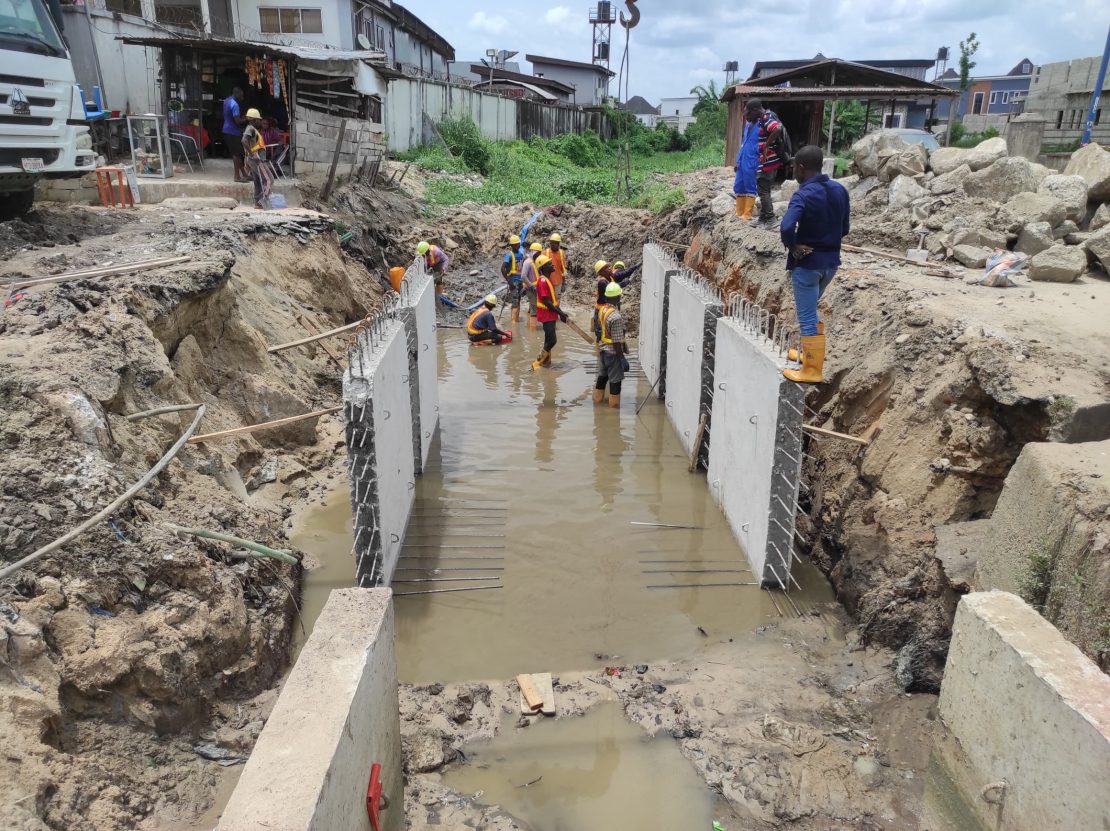
Understanding Geotechnical Considerations for Stormwater Drainage QC in Nigeria By John Cee Onwualu (FNSE, FNICE, FNIWE, P.E., R.ENG, MASCE)
Understanding Geotechnical Considerations for Stormwater Drainage QC in Nigeria
In civil engineering, the success of stormwater drainage systems depends heavily on geotechnical considerations. The interplay between soil properties and ground conditions directly impacts the quality, durability, and long-term functionality of these systems. In Nigeria, with its diverse soil profiles and environmental challenges, incorporating geotechnical insights into quality control (QC) processes is essential. This article delves into the importance of soil investigation, permeability tests, and slope stability analysis for effective stormwater drainage design and maintenance.

The Importance of Soil Investigation
Soil investigation forms the backbone of any civil engineering project, especially for stormwater drainage systems. It involves analyzing soil characteristics to determine its behavior under different conditions. In Nigeria, the need for comprehensive soil investigation cannot be overstated due to the following factors:
1. Foundation Design
- Accurate soil testing ensures appropriate foundation design, preventing structural failures caused by inadequate support or unexpected soil behavior.
- For instance, areas with clayey or expansive soils, common in parts of Nigeria, require tailored solutions to manage potential swelling or shrinkage.
2. Regulatory Compliance
- Many Nigerian states mandate soil testing before construction approvals, underscoring its importance in preventing infrastructure failure.
- Cities like Lagos require geotechnical reports to assess risks and ensure compliance with safety standards.
Key Methods:
Soil investigation typically includes techniques such as borehole drilling, standard penetration tests (SPTs), and soil sampling. These tests provide data on soil composition, bearing capacity, and settlement potential.

Permeability Tests for Effective Water Management
Permeability refers to the soil’s ability to allow water to pass through it, a factor that significantly influences stormwater drainage design. Understanding soil permeability helps engineers manage water flow and mitigate flooding risks.
1. Water Flow Management
- Soils with high permeability, like sandy soils, allow rapid water infiltration, which may require complementary drainage solutions to prevent localized erosion.
- Conversely, low-permeability soils, such as clays, may need additional drainage layers or materials to manage water effectively.
2. Material Selection
- Permeability test results guide the selection of construction materials, ensuring compatibility with site-specific conditions.
- For example, geotextiles or granular backfill materials may be used to enhance drainage performance in low-permeability soils.
Common Tests:
- Falling-head and constant-head permeability tests are widely used to determine soil permeability.
- Field infiltration tests can also provide real-time data on water movement through the soil profile.

Slope Stability Analysis: Preventing Failures
In regions with varied topography, such as Nigeria, slope stability is a critical factor in the design and maintenance of stormwater drainage systems. Improperly stabilized slopes can lead to erosion, landslides, and structural failures.
1. Preventing Erosion and Landslides
- Slope stability analysis identifies potential failure zones and allows engineers to implement measures like retaining walls, terracing, or vegetation cover.
- In flood-prone areas, analyzing soil shear strength and cohesion helps mitigate erosion risks.
2. Long-Term Performance
- Regular slope stability assessments ensure the continued functionality of drainage systems by addressing issues such as embankment failures or soil creep.
- Such measures are vital for large-scale drainage networks, particularly those adjacent to highways or urban developments.
Techniques Used:
- Stability analyses often rely on tools like limit equilibrium methods, finite element modeling, and site-specific geotechnical surveys.

Key Takeaways for Nigerian Stormwater Projects
To ensure the longevity and efficiency of stormwater drainage systems in Nigeria, civil engineers must integrate geotechnical considerations into their QC processes:
- Conduct thorough soil investigations to inform foundation design and regulatory compliance.
- Perform permeability tests to manage water flow and guide material selection.
- Undertake slope stability analyses to prevent erosion, landslides, and long-term system failures.
By addressing these geotechnical factors, engineers can create resilient infrastructure that meets regulatory standards, withstands Nigeria’s environmental challenges, and ensures public safety.

Conclusion
Incorporating geotechnical considerations into the QC of stormwater drainage systems is indispensable for sustainable urban development in Nigeria. From soil investigations to slope stability analyses, these practices provide the foundation for designing drainage solutions that can endure the demands of heavy rainfall and diverse soil conditions. As cities expand and climate patterns evolve, prioritizing geotechnical factors will be critical for effective and sustainable stormwater management.
References
How much is soil test for building in Lagos and other states in Nigeria – Properties – Nigeria. (n.d.). https://www.nairaland.com/8026738/how-much-soil-test-building
ome.construction – Soil Test For Nigeria Building Construction. (n.d.). https://www.ome.construction/soil-test-for-nigeria-building-construction
Pmp, A. a. C. P. (2018, March 9). Soil Test/Soil investigation in Nigeria. https://www.linkedin.com/pulse/soil-testsoil-investigation-nigeria-adigun-akeem
Soil Sampling – Nigerian Building & Road Research Institute (NBRRI). (2023, August 18). Nigerian Building & Road Research Institute (NBRRI). https://nbrri.gov.ng/new/service/soil-sampling/
Nbrriadmin. (2019, June 19). Soil Testing – Nigerian Building & Road Research Institute (NBRRI). Nigerian Building & Road Research Institute (NBRRI). https://nbrri.gov.ng/new/soil-testing/
Soil testing. (n.d.). SGSCorp. https://www.sgs.com/en-ng/service-groups/soil-testing
https://jiji.ng/lekki/building-and-trades-services/soil-testing-analyst-and-structural-civil-engineers-2Gf4rlJnvL6WEdRHalPHclMS.html
https://geores.sitesng.com/en_Geotechnical+Services.html